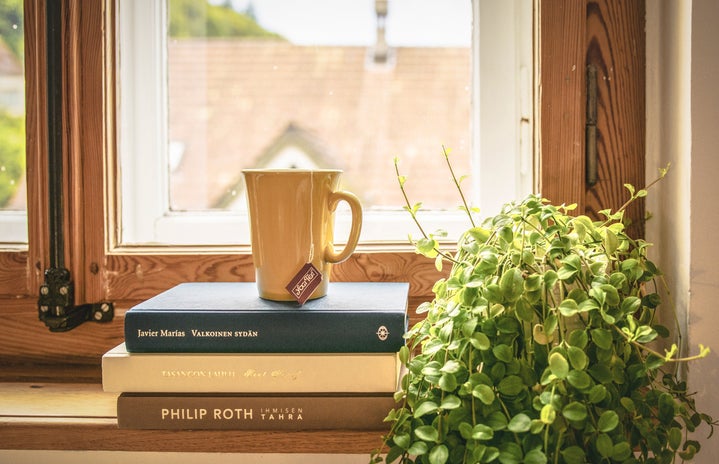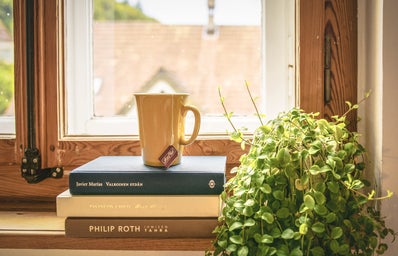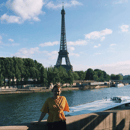The better title for Jenny Odell’s book, How to Do Nothing, would actually be its subtitle: Resisting the Attention Economy. Odell doesn’t really want you to do nothing; she just wants you to do something other than what every big tech and advertising company wants you to do, which is to impulsively broadcast your every thought on social media.
Odell, a professor of art and design at Stanford, views our attention spans as precious commodities that every big tech and advertising company is trying to buy into. By using social media to vent our emotions, which so many of us are guilty of doing, we are commodifying our very brains, in a way. If we unplug from the platforms we’re (often unknowingly) being sold out on, Odell says we can turn our attention to more pressing issues in more productive ways, build meaningful human relationships, and stop living in the false reality that social media so often is. “A simple refusal motivates my argument: refusal to believe that the present time and place, and the people who are here with us, are somehow not enough,” Odell writes in the book’s introduction. Averting our eyes from the screens that enrapture us would, in the view of corporations, be doing “nothing” because it wouldn’t make them any money. But freeing ourselves from the prisons of “success” and “usefulness,” we could, according to Odell, transform society.
How to Do Nothing is a self-help guide at the same time as it’s not (let’s just say it’s not next up on the list of your local suburban mom’s book club, though maybe it should be). Odell’s book is a critical examination of the complicated, seemingly inescapable mess social media has become, especially in the age of Trump. But she doesn’t go all hippie on you, saying let’s “get back to the garden” and start meditating for hours on end every day. She treats her subject with a refreshing gravity that reminds us that we can’t just escape to social media to distract ourselves from our crumbling society. At the same time, removing oneself from the online world is no easy task either. While she does lay out specific ideas and remedies to begin living a more meaningful existence outside of social media – it really is as easy as logging off – her book is more analytical in its approach, looking at how the internet has infiltrated every minute of our existences and why we choose the digital world over real life.
Photo Credit: Pexels
How to Do Nothing encourages readers to unplug from social media and put their time and energy into something more meaningful.
Odell’s argument is bolstered by her acknowledgment that committing to a lifestyle free from social media and the demands of a capitalist society is not at all easy or even doable for everyone. She understands that not everyone can go sit in the Morcom Rose Garden in Oakland (her favorite park) for hours on end like she can because her job as a professor only requires her to teach twice a week. This simple recognition of privilege is one that so many other authors of self-help books fail to account for, which ultimately does their work the disservice of seeming elitist and shallow, the type of thing that Oprah or Dr. Oz peddle on their TV shows. Odell’s admission to this fact gives her voice a sense of humility and made me much more willing to join her in revamping society.
Odell’s tone is also an inviting one because she doesn’t pretend to be an expert on anything she’s not (another fault of way too many self-help guides that claim to know all the answers). She lacks any air of superiority that could discourage her audience from reading further. Her eagerness to bring in the voices of other writers, philosophers, and researchers from all eras of history and areas of expertise gives her book more credibility because it’s clear that she’s done her homework. She includes feminist theorist Audre Lorde’s opinion on identifying oneself with society’s labels, David Foster Wallace’s speech on how to be more empathetic, and French philosopher Gilles Deleuze’s argument for silence and solitude, all of which support her point about examining the way you live your life. At the same time, the book never feels elitist or like it was written for just one class of college-educated people. How to Do Nothing may seem like academic writing because it is so heavily researched and sourced — practically every page has a footnote — but reading it isn’t like drowning in a thesis paper full of incomprehensible verbiage. Rather, Odell’s straightforward language lends it wider readability that any book that calls for a complete societal transformation should use.
Photo Credit: Pexels
Odell’s book emphasizes a stronger relationship with nature.
How to Do Nothing shines most, both emotionally and stylistically, in the moments when Odell speaks candidly about her own personal experiences with nature. A passage in which she describes watching a “glittering” flock of birds take off, wondering about a future in which they may not exist, is chilling in its bluntness. She solemnly questions whether she’d have a future were the birds to go extinct, and openly acknowledges that her desire to protect them is, in the end, a selfish one. “When I worry about the birds, I am also worried about watching all my possible selves go extinct… that I will be stripped of my own unusable parts, my own mysteries, and my own depths,” she writes.
Odell’s words shocked and numbed me, and compelled me to reckon with the fact that I have been lacking a truly intimate connection with nature since childhood. I realized that I have been distracting myself with social media for far too long, and I thought about all the things I might’ve missed when I was too busy looking at my phone. Odell’s words constantly provoke a deeper level of thinking, forcing you to confront your humanity, your mortality, and your quality of existence, at least that which you can control. How to Do Nothing’s strongest message isn’t just that we should unplug from the scorching white rectangular screens that burn our corneas for hours every day; it’s that there’s a beautiful, real world out there dying right before our eyes, and if we don’t look now we might miss it.
Want to keep up with HCBU? Make sure to like us on Facebook, follow us on Instagram, check out our Pinterest board, and read our latest Tweets!



